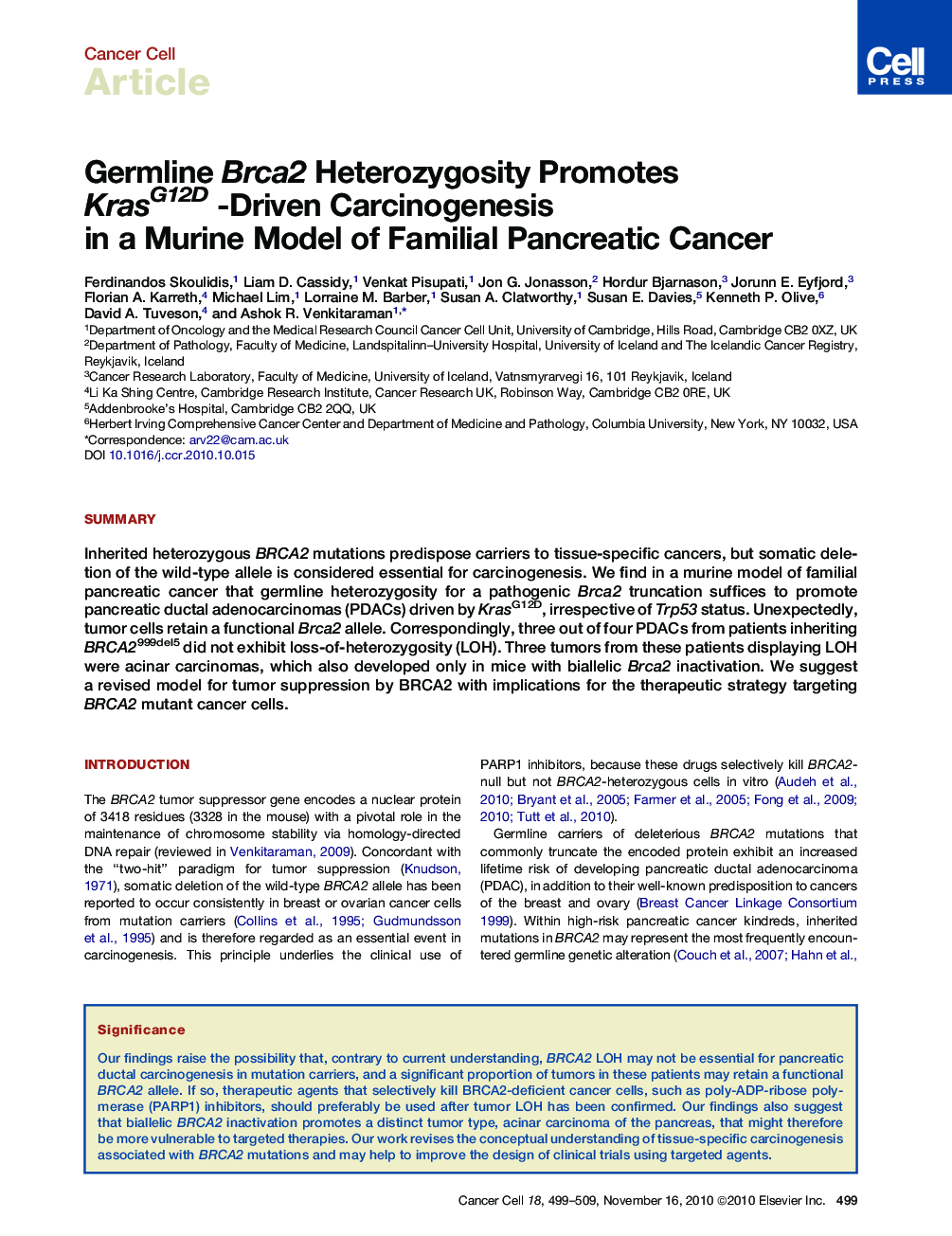| Article ID | Journal | Published Year | Pages | File Type |
|---|---|---|---|---|
| 2107668 | Cancer Cell | 2010 | 11 Pages |
SummaryInherited heterozygous BRCA2 mutations predispose carriers to tissue-specific cancers, but somatic deletion of the wild-type allele is considered essential for carcinogenesis. We find in a murine model of familial pancreatic cancer that germline heterozygosity for a pathogenic Brca2 truncation suffices to promote pancreatic ductal adenocarcinomas (PDACs) driven by KrasG12D, irrespective of Trp53 status. Unexpectedly, tumor cells retain a functional Brca2 allele. Correspondingly, three out of four PDACs from patients inheriting BRCA2999del5 did not exhibit loss-of-heterozygosity (LOH). Three tumors from these patients displaying LOH were acinar carcinomas, which also developed only in mice with biallelic Brca2 inactivation. We suggest a revised model for tumor suppression by BRCA2 with implications for the therapeutic strategy targeting BRCA2 mutant cancer cells.
Graphical AbstractFigure optionsDownload full-size imageDownload high-quality image (193 K)Download as PowerPoint slideHighlights► A murine model phenocopies pancreatic carcinogenesis in BRCA2 mutation carriers ► Unexpectedly, Kras-driven PDACs in Brca2Tr/+ mice retain functional Brca2 ► LOH at the mutation site is absent in 3 of 4 PDACs from BRCA2999 del5/+ carriers ► Biallelic BRCA2 inactivation may promote the development of acinar tumors
